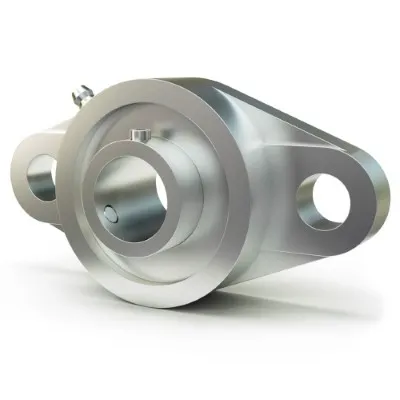Dec . 11, 2024 02:41 Back to list
Wholesale Spherical Roller Bearing Materials for Enhanced Performance and Reliability
Understanding Wholesale Spherical Roller Bearing Materials
Spherical roller bearings are a cornerstone in the world of machinery and equipment, known for their capacity to handle heavy loads and misalignments. As industries across the globe push for higher efficiency and durability in their components, the importance of understanding the materials used in the manufacturing of these bearings cannot be overstated.
What Are Spherical Roller Bearings?
Spherical roller bearings are designed to accommodate both radial and axial loads in two directions. Their unique design, featuring two rows of rollers that are oriented at an angle to the raceway, allows for self-alignment and the ability to support heavy loads, making them ideal for various applications from heavy machinery to automotive components.
Materials Used in Spherical Roller Bearings
The performance and longevity of spherical roller bearings greatly depend on the materials used in their production
. Here are the primary materials commonly utilized1. Chrome Steel (AISI 52100) Chrome steel is the most widely used material for spherical roller bearings. It is known for its high hardness, resistance to wear, and ability to maintain its properties at elevated temperatures. The presence of chromium and carbon enhances its properties, making it suitable for bearings that require high precision and reliability.
2. Carburized Steel This type of steel undergoes a carburization process where carbon is diffused into the surface of the steel, creating a hard outer layer while maintaining a tough core. Carburized steel bearings offer improved surface hardness, enhancing their wear resistance and extending their service life—qualities vital for high-load applications.
wholesale spherical roller bearing material

3. Stainless Steel For environments exposed to moisture and corrosive substances, stainless steel is an excellent choice. While it may not provide the same load-carrying capacity as chrome steel, it offers superior corrosion resistance and is often used in pharmaceutical, food processing, and marine applications. Common grades used include AISI 440C and AISI 304.
4. Ceramics Although less common, ceramic bearings (such as zirconia or silicon nitride) are gaining traction, especially in specialized applications. They exhibit excellent resistance to heat and corrosion, low density, and extremely low friction. However, they are more brittle than metal bearings and are typically used in environments where weight and thermal performance are critical.
5. Polymer Composites Advanced polymer materials are being explored for bearings, particularly in applications requiring lightweight components, low friction, and resistance to chemicals. While these materials may not handle high-load situations as effectively, they can be beneficial in niche markets such as aerospace and robotics.
The Impact of Material Selection on Performance
The choice of material for spherical roller bearings significantly influences their performance characteristics
- Load Capacity The hardness and structure of the material determine how much load the bearing can withstand without deformation or failure. - Durability Wear resistance is essential, especially in environments with heavy usage, where bearings are subject to constant friction and stress. - Temperature Resistance Materials must maintain their integrity under varying temperatures, especially in applications involving high rotational speeds or fluctuating environmental conditions. - Corrosion Resistance In some industries, bearings must withstand exposure to water, chemicals, or other corrosive mediums, making material selection crucial.
Conclusion
Understanding the materials used in wholesale spherical roller bearings is fundamental for engineers and industry professionals aiming to optimize the performance of machinery. From traditional chrome and carburized steel to innovative ceramic and polymer options, each material offers distinct advantages and drawbacks tailored to specific applications. Choosing the right material can lead to increased efficiency, reduced maintenance costs, and enhanced overall performance. As technology advances and new materials are developed, the landscape of bearing materials will continue to evolve, offering exciting possibilities for the future of engineering and manufacturing.
Latest news
-
UKF205 Pillow Housings Pillow Block Bearing - Durable & Reliable
NewsAug.09,2025
-
UCT210-30 Take Up Bearing Unit - Adjustable Pillow Block Housing
NewsAug.08,2025
-
W210PPB6 PEER Square Bore Farm Bearings - Heavy-Duty Ag
NewsAug.07,2025
-
UCF210-31 Flange Bearing | Heavy-Duty Cast Iron Unit
NewsAug.06,2025
-
Premium Spherical Roller Bearing Export Materials Supplier
NewsAug.05,2025
-
GWST211PPB40 Disc Harrow Bearing - High Durability Agriculture Solution
NewsAug.04,2025